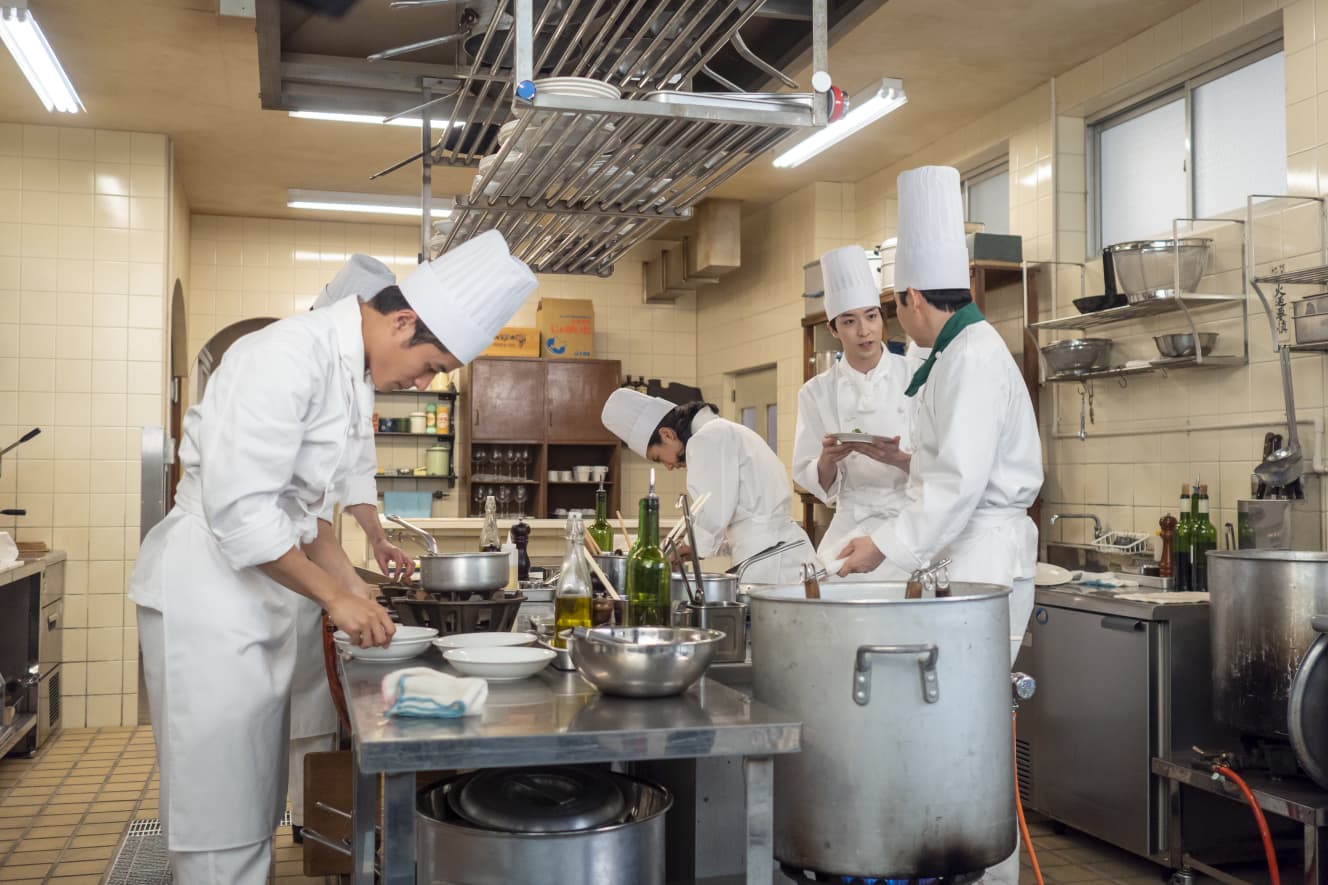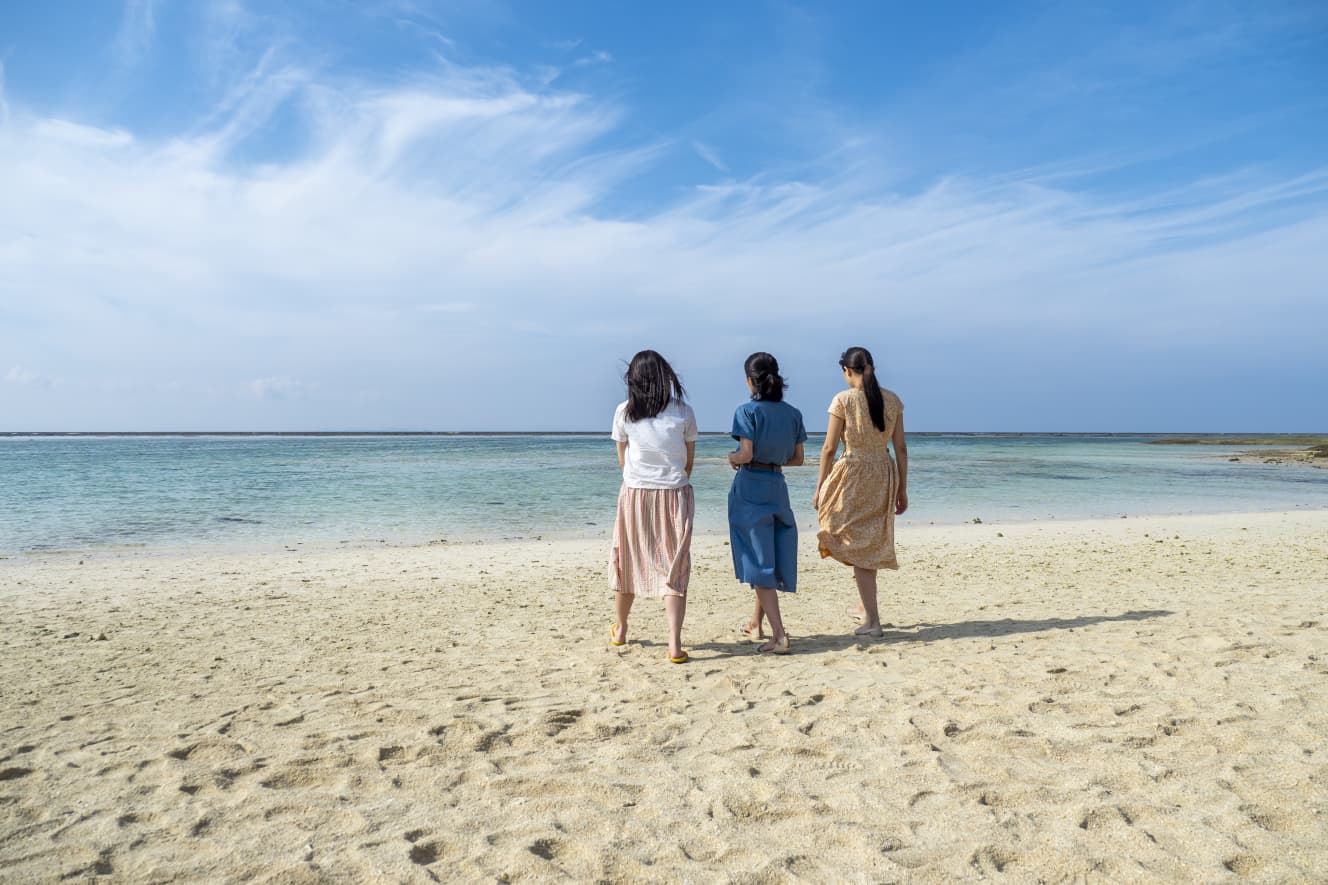What exactly is a “scheduler”?
From casting to filming schedules…
Have you ever heard of the job of a “scheduler” for dramas and movies?
When you go to a studio where morning dramas are recorded, you will usually find a list of schedules filled with incredibly detailed information posted at the entrance. The “scheduler” is the one who creates and manages this information.
What kind of work is it? When we requested an interview for the TV series “Chimu Dodon,” the producer, Ms. Yukako Takahashi, was kind enough to respond to our request.
I am a member of the producer team of “Chimu-Don-Don,” and my main duties include scheduling and casting.
Depending on the production, we may hire freelance schedulers who specialize in scheduling for a certain period of time. However, there are many productions, such as the historical dramas “Seiten wo Sukuke” and “Kamakuradono no 13-nin,” for which NHK employees like myself are in charge of the scheduling.
What is the difference between an outside professional scheduler and a producer or other scheduler?
I was previously in charge of the scheduling for the eight-episode “Kirei no Kuni” (to be broadcast on NHK Sogo from April 2021), and at that time I realized that the job involves being intimately involved in the creation of the script and content.
Having a rough idea in my head of the schedule from crank-in to crank-up, I knew, for example, how much of the casting schedule I could expect to receive, and I could estimate the number of actors who would be busy and whether or not I could attack them.
The process of developing the content of a story and creating a schedule are closely related, so I think it is possible for a producer to act as a scheduler as part of the process of creating the content.
Mr. Takahashi has been involved in drama production for eight years. Until now, he has worked as an assistant director on set and has seen the work of schedulers.
But when I actually did it myself, I was surprised at how many things I had to think about and how many things I had to do.
Schedulers basically think about the schedule in reverse, but “Kirei no Kuni” was a film that made full use of VFX, so the editing and compositing work had to proceed in a different flow than usual, and it was especially difficult to calculate backwards with the on-air date in mind.

To film all 125 episodes in about a year…
On the other hand, morning dramas are characterized by their enormous physical volume: 15 minutes x 5 days each week x 6 months (125 episodes).
As a scheduler for “Chimu Dodan,” I started last April by reading scripts. At first, I was working on “Kirei no Kuni” and then I officially joined “Chimu Dodan” and became the full-time scheduler in June of last year. At that point, the script was six to seven weeks in the making.
From there, we would crank the film in the fall, and over the course of a year, we would first determine how much filming would need to be done in a day to complete all 125 episodes, and then we would determine the daily schedule.
In the case of morning dramas, most of the filming is done on studio sets, but basically, the sets are rebuilt on Saturdays and Sundays, and another set is built after a while. How far along should we be in the filming process once it is built? When should that set be built next? What set should we build next week, etc. We take all the necessary factors into consideration, and depending on the cast’s schedule, we keep changing the sets as we shoot.
Sometimes there are several sets in one studio, and we can easily move back and forth between them, but other times we have to take breaks or change decorations late at night. In other cases, we have to take breaks or change the decorations in the middle of the night.
For example, if the set of the restaurant Fontana, where the heroine works, is to be built over a two-week period, the entire Fontana section from week 6 to 9 of the script is to be shot in two weeks, and the order of shooting is to be determined.
It would be better if we could shoot in the same order as the story, but there are many things to check and adjust, such as the schedules of the cast and the instructor, so we have to make detailed adjustments by changing the order of shooting.

The schedule can be changed depending on the corona and weather conditions…
The standard daily shooting schedule is “start at 9:00 a.m. and end around 9:00 p.m.” due to the influence of reforms in the way people work. However, the schedule often has to be changed due to Corona and weather conditions.
The director or producer on location decides whether to wait for a break in the weather or to give up and withdraw for the day, and which scenes can be changed to a rain setting for shooting. Using various weather forecasting applications to check the flow of rain clouds and the amount of precipitation, they consider which locations can be filmed and which scenes should be switched in order to make the filming smoother. Whenever a change was made, we would inform the entire team of the change.
The amount of checking, requesting, and coordinating work that is done simultaneously with each other is quite extensive, but I wonder if any mistakes are made, such as “We forgot to shoot this scene,” or “We forgot to contact them.
“To be honest, I never think to myself, ‘Oh! I forgot to contact this person,’ but I recovered quickly (laughs).
The busier the actors, the more restrictive the schedule becomes. I would work as a team with the director, art direction, technical staff, and cast members to make sure everything went according to schedule, while I would think of ways to make things as easy and efficient as possible on the set.

The hardest part was the cooking scene.
As a scheduler, what has been the most difficult scene so far?
The cooking scene was the hardest. If it is a scene where one character is cooking by himself, you can read how long it will take to shoot, but if there are several people cooking in the kitchen, like in Fontana, the script says “preparing lunch” and the scene takes only a second or two to shoot, but when you actually shoot it, you have to think about what “Mr. 0” is doing and “Ms. 0” is doing. In the actual filming, we have to add movements such as, “When Mr. Zero is doing what Mr. Zero is doing, Mr. Zero is talking to him here.
If we get an NG, we have to go back to the original procedure, and in the cooking process, we have to do some restoration work. If steam needs to be cut, heating time is also required. That said, if we estimate more in the dark, it would make our daily recording less efficient, so it is difficult to find the right balance between the two.”
Incidentally, the way Mr. Takahashi creates his schedule is to first write down rough information such as “what scenes are in which week” and “what sets are needed” in a notebook, and then organize them in his mind as “once this set is built, all the scenes up to this point will be shot. From there, he uses a PC to input more and more elements, such as how many minutes each scene will take and who is needed.
Being pressed daily with minute-by-minute calculations is going to change the way he spends his daily life, his sense of speed, and his efficiency. Do you feel any change after working with the scheduler?
I don’t dislike having to think about arrangements, so maybe that’s just in my nature (laughs).
(Laughs) Besides, since I was working as an assistant director, it has been my basic practice to simulate the schedule in advance in order to keep to it. I think about things like ‘……’. Since I have so many opportunities to look at the calendar, I have also developed the nonsensical skill of knowing immediately what day of the week it is (laughs).
If the recording goes as planned, there is about a month left. When asked what he would like to do when he is freed from this enormous amount of information-processing “scheduler” work, Mr. Takahashi laughed.
I’m going to take it easy and go on a trip without worrying about time (laughs).
Interview and text by: Wakako Takou
Born in 1973. After working for a publishing company and an advertising production company, became a freelance writer. She interviews actors for weekly and monthly magazines and writes drama columns for various media. His main publications include "All Important Things Are Taught by Morning Drama" (Ota Publishing), "KinKiKids: Owarinaki Michi" and "Hey!Say!JUMP: When 9 Tobira Open" (both from Earls Publishing).